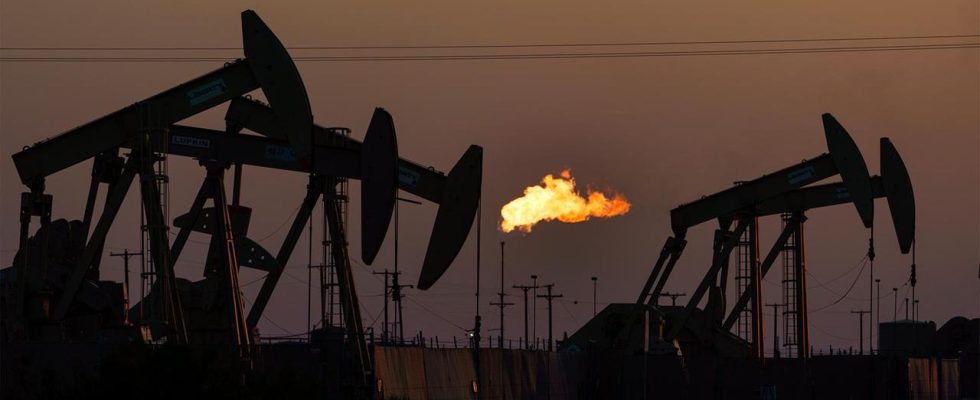The exit from coal, oil and gas is being hotly discussed at the World Climate Conference. However, an analysis by the “Net Zero Tracker” shows that very few funding countries actually want to get out.
The global phase-out of fossil fuels is one of the most controversial topics at the COP28 global climate conference in Dubai. Experts believe it is essential to achieving international climate goals. But only a fraction of oil and gas countries have exit plans so far, as a current evaluation by the so-called “Net Zero Tracker” by international research teams shows.
The countries examined were those that have “Net Zero Targets”, i.e. that in principle strive for climate neutrality. These represent around 88 percent of global greenhouse gas emissions, according to the researchers. But only seven percent of these emissions are covered by full or partial commitments to phase out exploration, production or consumption.
Three percent of oil and gas producers want to get out
Only three percent of the oil and gas states have committed to phasing out fossil fuel production. This only covers 0.8 percent of the oil and gas production of countries that actually want to operate climate-neutrally in the future. 13 percent of the countries examined want to get out of coal production – although the largest producers, China, the USA, Indonesia and India, are missing.
Most of the producing countries – as well as the hosts from the Emirates – want to continue to promote fossil fuels and rely on accompanying technologies such as CO2 storage or capture. However, these compensation technologies are scientifically controversial because they are still very expensive and cannot be used on a larger scale in a timely manner.
“Net Zero Tracker” developed by several institutes
Since 2021, the analysis tool “Net Zero Tracker” has been trying to create more transparency and accountability of the emissions targets of states, regions, cities and companies. It was developed jointly by several organizations, including the NewClimate Institute and researchers at the University of Oxford.
The researchers see the obligation of states to stop exploring new oil, gas and coal deposits as the most urgent immediate goal. So far only three percent of the funding countries have made corresponding decisions.

